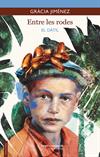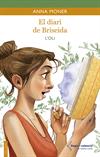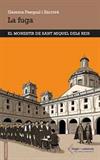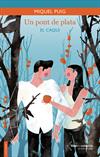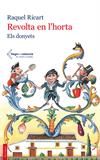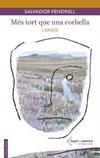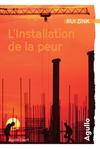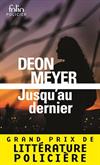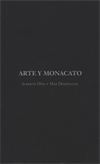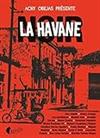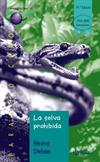
The Giver
2 journalers for this copy...
In early Ocober 2008 I made a trip to the Book Thing in Baltimore to stock up on books. I am just now getting the chance to register this book.
This book is a Newbery Medal Winner for the year 1994.
The Newbery Medal was named for eighteenth-century British bookseller John Newbery. It is awarded annually by the Association for Library Service to Children, a division of the American Library Association, to the author of the most distinguished contribution to American literature for children.
The Newbery Medal was named for eighteenth-century British bookseller John Newbery. It is awarded annually by the Association for Library Service to Children, a division of the American Library Association, to the author of the most distinguished contribution to American literature for children.
This book is a Sequoyah Book Award Winning Book for Young Adults for the year 1996.
Sponsored by the Oklahoma Library Association (OLA), the annual Sequoyah Book Award is a student’s choice award presented since 1959. The program added a Young Adult literature award in 1987. Books chosen for the annual Sequoyah masterlist are selected by two committees of OLA members. Each member of the committee reads over 100 books before recommending titles for the masterlists.
During the school year, young Oklahomans from grades three through junior high are encouraged to read the titles from the masterlist. Students must read or listen to three books in order to cast a vote. The winning book is announced in February and the award is presented during the annual Oklahoma Library Association’s spring conference.
With this award, Oklahoma honors the Native American leader, Sequoyah, for his unique achievement in creating the Cherokee syllabary. In so doing, he created a way to preserve his people’s language and culture.
Sponsored by the Oklahoma Library Association (OLA), the annual Sequoyah Book Award is a student’s choice award presented since 1959. The program added a Young Adult literature award in 1987. Books chosen for the annual Sequoyah masterlist are selected by two committees of OLA members. Each member of the committee reads over 100 books before recommending titles for the masterlists.
During the school year, young Oklahomans from grades three through junior high are encouraged to read the titles from the masterlist. Students must read or listen to three books in order to cast a vote. The winning book is announced in February and the award is presented during the annual Oklahoma Library Association’s spring conference.
With this award, Oklahoma honors the Native American leader, Sequoyah, for his unique achievement in creating the Cherokee syllabary. In so doing, he created a way to preserve his people’s language and culture.
I read a different copy of this book back in August 2005 and here are the comments I had at that time.
This book did not take me long to read. It isn't a big thick book and I wanted to keep reading it so that I could figure out where it was going.
The plot is not revealed all at once and the dynamics of the "community" are also slow to be revealed ... so that you get just a little more insight each page.
I am not so sure about the sentiment that the book is controversial but I did find it to be thought provoking. There are lots of different paths that the book could have taken and there is so much more that could be told about the lives of the characters.
SPOILER WARNING!!!
The rest of this I am going to write in white text so that it does not spoil the book for those who have not read it yet. If you want to read this section (and don't say that you were not warned) then all you need to do is highlight the blank looking area with your mouse and the words will appear.
I am going to start by answering a couple discussion questions that I found in the back of the book as I think that it will give me a jumping off point to start to tell about my feelings and thoughts of this book.
1. In The Giver, each family has two parents, a son, and a daughter. The relationships are not biological but are developed through observations and a careful handling of personality. In our own society, the makeup of family is under discussion. How are families defined? Are the families the foundations of society, or are they continually open for new definitions?
I think that biological ties are somewhat imperative to the definition of family. Because it is biology that makes children in the first place. The Community takes away this basic dynamic and turns the process of making children into something that is not born of love or relationship but only the science that is involved. And I don't think that an ideal family necessarily consists of 2 working parents and 2 children (one male and one female). For example, I would have never wanted to miss out on the experience of having an older sister. I think that same gender siblings are very beneficial in some cases. I think that the modern family is something that will continually evolve and become more and more interesting as time goes on and same sex couples start to adopt or use science to create children that they will share.
2. In Jonas's community, every person and his or her experience are precisely the same. The climate is controlled, and competition has been eliminated in favor of a community in which everyone works only for the common good. What advantages might "Sameness" yield for contemporary communities? Is the loss of diversity worthwhile?
I just want to give a short answer to this question. I think that more communities should work toward a goal of the common good. But I think that diversity is good as well. I think that everyone should be free to choose the path that they will use to support the community and should have certain freedoms but that society needs to concentrate more on helping each other rather than trying to get more for themselves only.
3. Underneath the placid calm of Jonas's society lies a very orderly and inexorable system of euthanasia, practiced on the very young who do not conform, the elderly, and those whose errors threaten the stability of the community. What are the disadvantages and benefits of a community that accepts such a vision of euthanasia?
I started to suspect what "release" meant earlier than it was actually revealed in the book. But it was a bit of a shock because Jonas (and others) believed that they actually went to a place of Elsewhere and didn't really have a concept of death. In some ways the concept is a good one for the Community as described in the book. It made sure that the people of the Community conformed to the standards as they were expected. When practiced on the very young infants I found it to be exceptionally unfair because they were not given an adequate chance to "prove themselves". When release is a sentence for crime I was not so appalled because I am in favor of the death penalty for crimes. However, I think that it might be a little bit harsh in the Community because I don't think that many of the offenses were not that serious as what the modern society would define as a serious crime.
In the case of the elderly being released ... it was described as a celebration, a wonderful occasion that was to be looked forward to. I think that modern society and modern medicine have so blurred the lines of when a person dies and when a person is just being kept alive via machines and a productive lifestyle that perhaps a better system needs to be devised. I know that I would rather be released when being faced with days of excruciating pain with little hope of recovery or in a case where I don't know about my surroundings and I can no longer make a contribution to the society.
6. There are groups in the United States today that actively seek to maintain an identity outside the mainstream culture: the Amish, the Mennonites, Native American tribes, and the Hasidic Jewish community. What benefits do these groups expect from defining themselves as "other"? What are the disadvantages? How does the mainstream culture put pressure on such groups.
I felt that I needed to respond to this question because of the reference to the Amish. I have read several books about the Amish and I find their culture to be very interesting. One basis of their religion is that they must remain apart from things that are deemed "worldly". This keeps them apart as they do not join into the same activities, groups and thoughts of their neighbors. For example, using electricity would link them to a network that includes others that are not of their same beliefs and therefore it is something to be avoided. The culture of the Amish as they live it simply does not need modern technology to function in a manner that is acceptable to them.
I am unaware of Native American cultures that are living completely separate in the US. I have found through various studies that the Native Americans were treated very unfairly as they were forced to assimilate into a culture that was drastically different from everything they had ever known. I am saddened that there is not much left of the "old ways" and I wish that I could truly experience things in the way that the Native Americans did many centuries ago.
In relating this to the Community as mentioned in the book, I think that the Community probably works quite well for the people that are there. They simply don't know any different way of life. In this case I would not be in favor of trying to change their life I think that they should be left to it. On the other hand, I also think that members of the Community should not try and force their ideas on members of other areas. I am a believer in such things as "to each their own".
I want to comment on the ending as well. I read the interview with the author in the back of the book and I understand why the ending was left open but I really wish that it was not left open. In fact if I had not read the discussion questions and interview with the author that tells me the two possible endings then I would have given this book a much different review. And it would have been much lower because I am not one that likes to think when I am reading. I don't like to look for hidden meanings and I don't enjoy analyzing tiny details in books. For example, some might bring up the point that red is the first color that Jonas sees and that must mean something. Well, perhaps the author did mean something deeper by choosing red as the first color but that doesn't concern me. I just like to accept it as fact that the first color that Jonas saw was red and leave it at that.
So for these reasons I wish that the author had put an ending into the book and tell me what happens to Jonas and Gabe after they escape from the Community. I don't like guessing games and I don't like the open ending I felt cheated that I had read all that way and then I don't ever get to find out what happens in the end.
To the question of would I recommend this book to others, I am going to have to answer a maybe. I don't think that it is the right type of book for every person. I tried to get my husband to read it but he didn't seem interested.
Specifically, would I recommend this to a child? The answer would have to be No. I just don't think that the subject matter is one that I would recommend to young children. But on the other hand I would not discourage anyone from reading this book.
I would however tell a teen to read the book if it is something that they think would be interesting to them. But again I don't think that every teen would be able to relate to the book or be able to get enjoyment or meaning from it.
I do think that the book would be beneficial in a thought provoking way to many adults and I wish that more adults would read this book and think about their contribution to society and if perhaps they could do a better job of contributing to the greater good.
I think that this is my wordiest journal entry yet and I hope that it is helpful to those that want to read or have read this book.
This book did not take me long to read. It isn't a big thick book and I wanted to keep reading it so that I could figure out where it was going.
The plot is not revealed all at once and the dynamics of the "community" are also slow to be revealed ... so that you get just a little more insight each page.
I am not so sure about the sentiment that the book is controversial but I did find it to be thought provoking. There are lots of different paths that the book could have taken and there is so much more that could be told about the lives of the characters.
The rest of this I am going to write in white text so that it does not spoil the book for those who have not read it yet. If you want to read this section (and don't say that you were not warned) then all you need to do is highlight the blank looking area with your mouse and the words will appear.
I am going to start by answering a couple discussion questions that I found in the back of the book as I think that it will give me a jumping off point to start to tell about my feelings and thoughts of this book.
1. In The Giver, each family has two parents, a son, and a daughter. The relationships are not biological but are developed through observations and a careful handling of personality. In our own society, the makeup of family is under discussion. How are families defined? Are the families the foundations of society, or are they continually open for new definitions?
I think that biological ties are somewhat imperative to the definition of family. Because it is biology that makes children in the first place. The Community takes away this basic dynamic and turns the process of making children into something that is not born of love or relationship but only the science that is involved. And I don't think that an ideal family necessarily consists of 2 working parents and 2 children (one male and one female). For example, I would have never wanted to miss out on the experience of having an older sister. I think that same gender siblings are very beneficial in some cases. I think that the modern family is something that will continually evolve and become more and more interesting as time goes on and same sex couples start to adopt or use science to create children that they will share.
2. In Jonas's community, every person and his or her experience are precisely the same. The climate is controlled, and competition has been eliminated in favor of a community in which everyone works only for the common good. What advantages might "Sameness" yield for contemporary communities? Is the loss of diversity worthwhile?
I just want to give a short answer to this question. I think that more communities should work toward a goal of the common good. But I think that diversity is good as well. I think that everyone should be free to choose the path that they will use to support the community and should have certain freedoms but that society needs to concentrate more on helping each other rather than trying to get more for themselves only.
3. Underneath the placid calm of Jonas's society lies a very orderly and inexorable system of euthanasia, practiced on the very young who do not conform, the elderly, and those whose errors threaten the stability of the community. What are the disadvantages and benefits of a community that accepts such a vision of euthanasia?
I started to suspect what "release" meant earlier than it was actually revealed in the book. But it was a bit of a shock because Jonas (and others) believed that they actually went to a place of Elsewhere and didn't really have a concept of death. In some ways the concept is a good one for the Community as described in the book. It made sure that the people of the Community conformed to the standards as they were expected. When practiced on the very young infants I found it to be exceptionally unfair because they were not given an adequate chance to "prove themselves". When release is a sentence for crime I was not so appalled because I am in favor of the death penalty for crimes. However, I think that it might be a little bit harsh in the Community because I don't think that many of the offenses were not that serious as what the modern society would define as a serious crime.
In the case of the elderly being released ... it was described as a celebration, a wonderful occasion that was to be looked forward to. I think that modern society and modern medicine have so blurred the lines of when a person dies and when a person is just being kept alive via machines and a productive lifestyle that perhaps a better system needs to be devised. I know that I would rather be released when being faced with days of excruciating pain with little hope of recovery or in a case where I don't know about my surroundings and I can no longer make a contribution to the society.
6. There are groups in the United States today that actively seek to maintain an identity outside the mainstream culture: the Amish, the Mennonites, Native American tribes, and the Hasidic Jewish community. What benefits do these groups expect from defining themselves as "other"? What are the disadvantages? How does the mainstream culture put pressure on such groups.
I felt that I needed to respond to this question because of the reference to the Amish. I have read several books about the Amish and I find their culture to be very interesting. One basis of their religion is that they must remain apart from things that are deemed "worldly". This keeps them apart as they do not join into the same activities, groups and thoughts of their neighbors. For example, using electricity would link them to a network that includes others that are not of their same beliefs and therefore it is something to be avoided. The culture of the Amish as they live it simply does not need modern technology to function in a manner that is acceptable to them.
I am unaware of Native American cultures that are living completely separate in the US. I have found through various studies that the Native Americans were treated very unfairly as they were forced to assimilate into a culture that was drastically different from everything they had ever known. I am saddened that there is not much left of the "old ways" and I wish that I could truly experience things in the way that the Native Americans did many centuries ago.
In relating this to the Community as mentioned in the book, I think that the Community probably works quite well for the people that are there. They simply don't know any different way of life. In this case I would not be in favor of trying to change their life I think that they should be left to it. On the other hand, I also think that members of the Community should not try and force their ideas on members of other areas. I am a believer in such things as "to each their own".
I want to comment on the ending as well. I read the interview with the author in the back of the book and I understand why the ending was left open but I really wish that it was not left open. In fact if I had not read the discussion questions and interview with the author that tells me the two possible endings then I would have given this book a much different review. And it would have been much lower because I am not one that likes to think when I am reading. I don't like to look for hidden meanings and I don't enjoy analyzing tiny details in books. For example, some might bring up the point that red is the first color that Jonas sees and that must mean something. Well, perhaps the author did mean something deeper by choosing red as the first color but that doesn't concern me. I just like to accept it as fact that the first color that Jonas saw was red and leave it at that.
So for these reasons I wish that the author had put an ending into the book and tell me what happens to Jonas and Gabe after they escape from the Community. I don't like guessing games and I don't like the open ending I felt cheated that I had read all that way and then I don't ever get to find out what happens in the end.
To the question of would I recommend this book to others, I am going to have to answer a maybe. I don't think that it is the right type of book for every person. I tried to get my husband to read it but he didn't seem interested.
Specifically, would I recommend this to a child? The answer would have to be No. I just don't think that the subject matter is one that I would recommend to young children. But on the other hand I would not discourage anyone from reading this book.
I would however tell a teen to read the book if it is something that they think would be interesting to them. But again I don't think that every teen would be able to relate to the book or be able to get enjoyment or meaning from it.
I do think that the book would be beneficial in a thought provoking way to many adults and I wish that more adults would read this book and think about their contribution to society and if perhaps they could do a better job of contributing to the greater good.
I think that this is my wordiest journal entry yet and I hope that it is helpful to those that want to read or have read this book.
This book was released for the Banned/Challenged Books Release Challenge from the release challenge forum.
The main reasons books are challenged and banned:
People challenge books and other materials for a variety of reasons; however, all challenges occur because the book in question is deemed controversial. Whether the books feature graphic language, strong violence, or explicit sexual content, people that challenge materials feel that others should not have access to them.
This is release #51 for this challenge.
The main reasons books are challenged and banned:
People challenge books and other materials for a variety of reasons; however, all challenges occur because the book in question is deemed controversial. Whether the books feature graphic language, strong violence, or explicit sexual content, people that challenge materials feel that others should not have access to them.
This is release #51 for this challenge.
This book was released for the 2009 Movie/TV Books Release Challenge from the release challenge forum.
This is release #120 for this challenge.
This is release #120 for this challenge.
This book is being counted for the 2009 Track Your Challenge Releases from the release challenge forum. This book is being released for one or more other challenges.
This is release #948 for the year that qualifies for this challenge.
Released 26 September 2009 at the:
The Library of Congress Celebrates the Joy of Reading
The 2009 National Book Festival, organized and sponsored by the Library of Congress, will be held on Saturday, September 26, 2009, on the National Mall in Washington, D.C., between 7th and 14th streets from 10 a.m. to 5:30 p.m. The festival is free and open to the public.
I attended this event with a yellow wagon full of books and was able to give them all away to people that wanted them. A success in my book!
This author is scheduled to appear at the National Book Festival in Washington, D.C. I am specifically releasing this book today in hopes that a fan of this author has come to the book festival and will find this book and be intrigued about the book and BookCrossing. Alternately this book may find someone who does not know this author already and it is my hope that the finder will enjoy this book and this author will find yet another fan.
This is release #948 for the year that qualifies for this challenge.
Released 26 September 2009 at the:
The 2009 National Book Festival, organized and sponsored by the Library of Congress, will be held on Saturday, September 26, 2009, on the National Mall in Washington, D.C., between 7th and 14th streets from 10 a.m. to 5:30 p.m. The festival is free and open to the public.
I attended this event with a yellow wagon full of books and was able to give them all away to people that wanted them. A success in my book!
This author is scheduled to appear at the National Book Festival in Washington, D.C. I am specifically releasing this book today in hopes that a fan of this author has come to the book festival and will find this book and be intrigued about the book and BookCrossing. Alternately this book may find someone who does not know this author already and it is my hope that the finder will enjoy this book and this author will find yet another fan.
Found at the National Bookfair in DC
Ok, I JUST finished reading it. Good. lets see what somebody else thinks of it.

